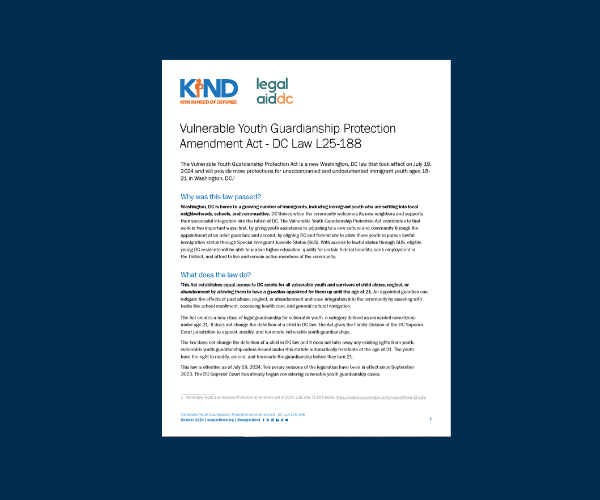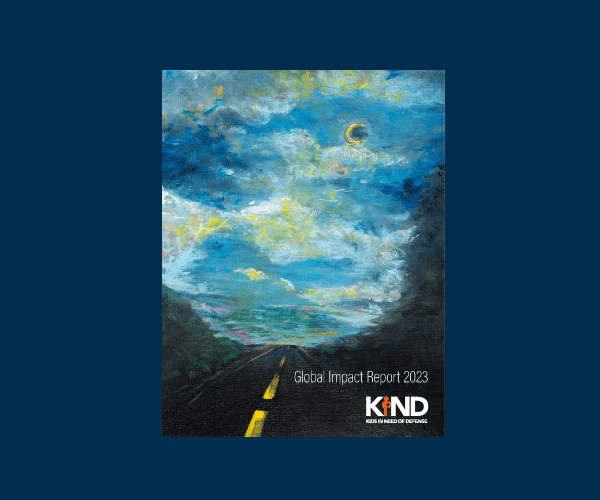What aspects of this pro bono work are different from the everyday work you do at Proskauer?
Two aspects of this case jump out at me as being different from my typical work at Proskauer. First, I’ve never previously practiced in family court or immigration court. Learning how to navigate those two systems, both substantively and procedurally, has been (and continues to be) different and challenging.
The second difference is what is at stake. I’m a trial lawyer and although the cases I work on are usually very important to the client, it is usually comes down to a question of money. My case with KIND will impact my clients’ lives at the most fundamental level. For them, it is the difference between continuing to live in this country and being sent back to face the gang violence they fled in El Salvador.
How did you become involved in working with KIND and taking on *Diana and *Ana’s case pro bono?
I wanted to get involved in a case that would enable me to work with children and practice speaking Spanish. I received an email about a KIND training session and decided I would attend to learn more about the organization. After the training, I asked one of my colleagues if she would be interested in taking a case with me. Turns out, she was already working on a KIND case and was looking for someone to work with her on it. That’s how *Diana and *Ana became my clients.
Can you share a bit about *Diana and *Ana’s case: what it was like meeting them for the first time?
I was nervous! *Diana and *Ana were both a bit shy, but incredibly sweet and gracious. They have both been through an incredibly harrowing experience, but they remain optimistic and hopeful. Their resilience is inspiring.
Was this your first time working with a child client? Would they have been able to do this on their own and face immigration court alone?
This is my first time working with a child client (though at this point both *Ana and *Diana are in their 20s.) It would have been nearly impossible for *Diana and *Ana to file for Special Immigrant Juvenile Status on their own. Even as a practicing lawyers and native English speaker, I have found some portions of the process confusing and my colleagues and I have relied on guidance from our KIND attorney coordinators at every turn.
What would you say to other attorneys considering taking a case from KIND?
They should absolutely do it. These kids really do need lawyers, especially in the face of today’s constantly shifting and increasingly grim immigration landscape.
Why do you think it is so important for attorneys to engage as advocates for pro bono issues such as vulnerable, unaccompanied children?
Everyone deserves legal representation, but most people in the immigration system, including and especially children, don’t have lawyers. Not only is it the right thing to do, but as lawyers we have a professional responsibility to provide legal services to those unable to pay for them. Pro bono work is beneficial for the lawyer too—it can be incredibly rewarding and it’s a great way to get practical experience.
*Child’s name and certain information have been changed to protect his identity.





